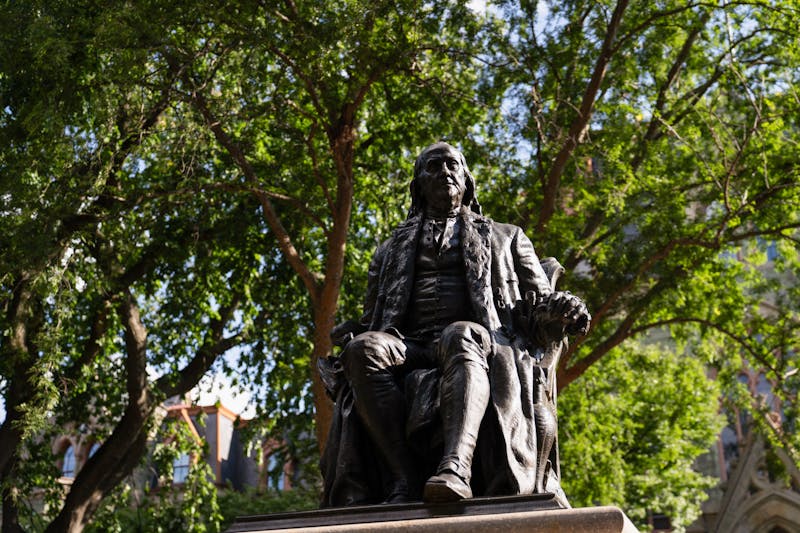
2024 College graduate Eyal Yakoby and other Penn students filed a lawsuit against the University in December.
Credit: Liliann ZouPenn cited the formation of the new Office of Religious and Ethnic Inclusion as evidence in the ongoing lawsuit against the University alleging an insufficient response to antisemitism, just days after the office was formed.
In the motion — which was filed on Sept. 9 — Penn cites the newly created office as proof that the University “has taken significant additional steps to combat antisemitism.” The motion is the latest in the University’s ongoing effort to dismiss the case filed by students in December of last year.
A University spokesperson declined to comment.
On Sept. 5 — four days before citing it in the lawsuit — Interim Penn President Larry Jameson announced the new office, which aims to ensure Penn is fulfilling its obligations under Title VI of the Civil Rights Act of 1964. An accompanying declaration by David Gringer, the attorney representing Penn, also points to the Temporary Standards and Procedures for Campus Events and Demonstrations as steps taken to address antisemitism.
The plaintiffs — 2024 College graduate Eyal Yakoby, College sophomore Jordan Davis, and Wharton and Engineering senior Noah Rubin — filed a response to the University’s motion on Sept. 23, arguing that their allegations from the initial case still stand, despite recent University actions.
In their filing, the plaintiffs refer to Penn’s announcement of the Office of Religious and Ethnic Inclusion as “just that: an announcement.” They add that other antisemitism lawsuits at the University of California at Los Angeles, Harvard University, and the Massachusetts Institute of Technology show that their claims are “ripe” and that there is “no reason, and the notice offers none, to depart from these well-reasoned, directly on-point decisions.”
“Whether the office, if and when it is implemented, will ameliorate the antisemitic hostile educational environment at Penn is anyone’s guess,” the response read. “No one judging by Penn’s past performance—and Plaintiffs’ allegations—should be optimistic.”
In a statement to the DP, Yakoby described the office’s establishment as “an ineffective Band-Aid on the crisis” and called on the University to “enforce their existing policies.”
Yakoby also criticized the University for failing to take action against the group Penn Faculty for Justice in Palestine for an Instagram story earlier this month memorializing the Oct. 7, 2023, Hamas attack on Israel as a “day of resistance.”
“Why is it that no faculty were sanctioned for their role in the Penn encampment? President Jameson said that the encampment violated Title VI; maybe the University can start there,” Yakoby said.
Davis and Rubin did not respond to The Daily Pennsylvanian’s request for comment.
In the plaintiffs’ initial document requests — which were sent on July 18 — they requested several types of documents and communications, including those “concerning Penn faculty members” and their “opinions expressed outside the confines of Penn’s campus and on social media.” They also requested all documents and communications sent to the United States Congress.
On July 31, Penn also filed a motion alerting the court of a ruling in a similar case at a peer institution as grounds to dismiss. The University had already filed two motions this year to dismiss the case, arguing plaintiffs’ claims are “premature” and citing their inability “to meet the standards of controlling precedent.”
Yakoby and Davis first filed the lawsuit on Dec. 5, 2023, and Rubin joined as a plaintiff in March 2024. The University has since filed multiple motions to dismiss it, in addition to a stay of discovery to stop the gathering of evidence on Sept. 9.
The Daily Pennsylvanian is an independent, student-run newspaper. Please consider making a donation to support the coverage that shapes the University. Your generosity ensures a future of strong journalism at Penn.
Donate











